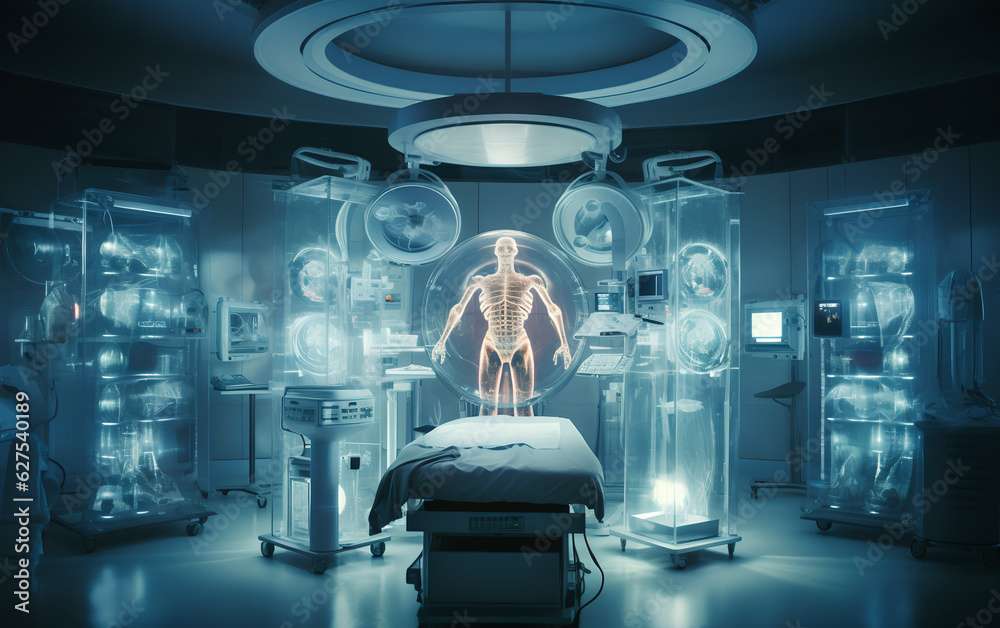
Latest Advances in Cancer Treatment in UAE
16 Jul, 2024
 Healthtrip Team
Healthtrip TeamLet's face it, we all know how daunting cancer can be. It’s a global health challenge that’s hitting close to home here in the UAE, with more of us or someone we know facing this tough diagnosis each year. It's a topic that's impossible to ignore. Hearing the word “cancer” often brings a wave of worry. It’s frightening, not just because of the disease itself but because of all that comes with it—the treatments, the uncertainty, and the emotional and financial toll it takes on patients and their families. We all feel the weight of it, and the journey through cancer care can seem overwhelmingly complex. But here’s some uplifting news—we’re not facing this alone. The UAE is at the forefront of oncology research and treatment, equipped with top-notch medical facilities and groundbreaking technologies. Our healthcare system is fully committed to tackling this disease head-on. In this blog, we’ll explore the different types of cancer treated in the UAE, unpack the latest treatment options, and celebrate how we, as a community, are turning the tide against cancer. Together, let’s learn how our nation is making strides in giving hope and restoring health.
Most popular procedures in India
1. Immunotherapy:
So, what exactly is immunotherapy? In simple terms, it's a treatment that uses your own immune system to fight cancer. Unlike traditional treatments like chemotherapy, which directly attack cancer cells (and often healthy ones too), immunotherapy boosts your body's natural defences to do the job.
Wellness Treatments
Give yourself the time to relax
Lowest Prices Guaranteed!

Lowest Prices Guaranteed!
The Latest Advances
a. Checkpoint Inhibitors: Imagine cancer cells wearing invisibility cloaks to hide from your immune system. Checkpoint inhibitors are like special glasses that help your immune system see those hidden cells. Drugs like pembrolizumab and nivolumab have been making waves here, especially for treating cancers like melanoma and lung cancer.
b. CAR T-Cell Therapy: This one's really cool. Doctors take some of your immune cells, give them superpowers in the lab, and then put them back in your body to fight cancer. It's shown amazing results, especially for some types of leukaemia and lymphoma. We're seeing more and more of this in the UAE, with several clinical trials underway.
c. Cancer Vaccines: Think of these like flu shots, but for cancer. They help your immune system recognize and attack cancer cells. The UAE is heavily investing in developing these vaccines to prevent cancer from coming back and to help patients recover better.
d. Oncolytic Virus Therapy: This is where doctors use viruses that have been altered to infect and kill cancer cells but leave healthy cells alone. It’s kind of like sending in tiny robots to dismantle the cancer from the inside. This innovative approach is being tested in clinical trials for cancers like melanoma and brain tumours.
How will these advances impact cancer treatment?
Now, let's talk about how these advances will make a difference here in the UAE:
a. Personalized Treatment: Immunotherapy allows doctors to tailor treatments to each patient's unique cancer. This means higher success rates and fewer side effects compared to one-size-fits-all treatments.
b. Better Survival Rates: Studies and patient experiences have shown that immunotherapy can significantly extend survival rates for certain cancers. As these treatments become more accessible in the UAE, more people will be able to live longer, healthier lives.
c. Fewer Side Effects: Traditional treatments like chemo can be tough on the body, causing a lot of side effects. Immunotherapy generally has fewer side effects, making the treatment process easier for patients.
d. New Hope for Difficult Cancers: Some cancers have been really hard to treat effectively. Immunotherapy is giving new hope to patients with these tough-to-treat cancers, offering new options where there were few before.
2. Precision Medicine:
Precision medicine is all about customizing medical treatment to the individual characteristics of each patient. In the context of cancer, it means using detailed information about a person’s genetics and cancer to choose the most effective treatment.
The Latest Advances
a. Genetic Profiling: One of the cornerstones of precision medicine is genetic profiling. By analyzing the genetic makeup of a patient's cancer, doctors can identify specific mutations driving the disease. This allows us to select treatments that target those mutations. Here in the UAE, we’re seeing a rise in the use of advanced genetic testing to guide treatment decisions, making therapies more effective and personalized.
b. Targeted Therapy: Unlike traditional chemotherapy, which can affect both healthy and cancerous cells, targeted therapies focus on specific molecules involved in cancer growth. For example, drugs like trastuzumab target HER2-positive breast cancer cells. These therapies are becoming increasingly available in the UAE, offering new hope to patients with various types of cancer.
c. Liquid Biopsies: This innovative technique involves taking a blood sample to detect cancer DNA in the bloodstream. It’s less invasive than traditional biopsies and can provide real-time insights into how a cancer is responding to treatment. Liquid biopsies are making their way into clinical practice in the UAE, helping doctors monitor and adjust treatments more effectively.
d. Artificial Intelligence (AI) in Diagnostics: AI is playing a big role in precision medicine by helping to analyze vast amounts of data from genetic tests, medical images, and patient records. In the UAE, hospitals are starting to integrate AI to improve diagnostic accuracy and personalize treatment plans. This means quicker, more accurate diagnoses and tailored treatment strategies for patients.
How will these advances impact cancer treatment?
Now, let’s talk about how these advances in precision medicine are making a difference here in the UAE:
a. Personalized Treatment Plans: With precision medicine, treatments are tailored to the genetic profile of each patient’s cancer. This personalized approach increases the effectiveness of treatments and minimizes side effects, leading to better outcomes and improved quality of life.
b. Early Detection and Monitoring: Techniques like liquid biopsies allow for earlier detection of cancer and continuous monitoring of how the disease is responding to treatment. This means we can catch changes sooner and adjust treatments as needed, giving patients a better chance at successful outcomes.
c. Improved Survival Rates: By targeting the specific genetic mutations driving cancer, precision medicine can lead to better survival rates. As these advanced treatments become more widely available in the UAE, more patients will benefit from increased longevity and improved health.
d. Access to Cutting-Edge Research: The UAE is investing heavily in research and development in the field of precision medicine. This means patients here have access to the latest clinical trials and cutting-edge treatments, keeping them at the forefront of cancer care.
3. Minimally Invasive Surgery (MIS):
Minimally invasive surgery involves performing operations through tiny incisions instead of large ones. This approach uses advanced technologies like laparoscopes and robotic systems to perform precise and less traumatic surgeries. For cancer patients, this means shorter recovery times, less pain, and fewer complications.
The Latest Advances
a. Laparoscopic Surgery: Laparoscopic surgery involves using a thin tube with a camera and light (laparoscope) to view and operate on internal organs. Surgeons make small incisions to insert the laparoscope and specialized instruments. In the UAE, laparoscopic techniques are being increasingly used for cancers of the colon, liver, and other abdominal organs, offering patients quicker recovery and less postoperative pain.
b. Robotic-Assisted Surgery: Robotic-assisted surgery, like the Da Vinci Surgical System, allows surgeons to perform complex procedures with greater precision and control. This technology enhances the surgeon’s capabilities with 3D visualization and finely tuned instruments. In the UAE, robotic-assisted surgeries are becoming more common for prostate, gynecologic, and other cancers, providing excellent outcomes and faster recovery times.
c. Video-Assisted Thoracoscopic Surgery (VATS): VATS is a minimally invasive technique used to diagnose and treat lung cancer. It involves inserting a small camera and instruments through tiny incisions in the chest. This technique reduces the trauma associated with traditional open surgery and allows for quicker recovery. Hospitals in the UAE are adopting VATS for its effectiveness and patient benefits.
d. Endoscopic Surgery: Endoscopic surgery uses a flexible tube with a camera and tools (endoscope) to operate through natural openings in the body. For cancers of the gastrointestinal tract, endoscopic procedures can remove tumours without the need for large incisions. This approach is gaining traction in the UAE, offering a less invasive option for patients.
How will these advances impact cancer treatment?
Let’s dive into how these advances in minimally invasive surgery are changing the landscape of cancer treatment in the UAE:
a. Shorter Recovery Times: With smaller incisions, patients experience less pain and faster healing. This means they can return to their daily lives more quickly compared to traditional surgery.
b. Reduced Complications: Minimally invasive techniques typically result in fewer complications such as infections and bleeding. This improves overall patient outcomes and reduces the need for extended hospital stays.
c. Better Cosmetic Outcomes: Smaller incisions mean less scarring, which is an important consideration for many patients. This enhances the overall quality of life and self-esteem during and after recovery.
d. Enhanced Precision and Control: Robotic-assisted and laparoscopic surgeries provide surgeons with better visualization and control, leading to more precise removal of tumours. This can improve the effectiveness of the surgery and reduce the risk of cancer recurrence.
4. Proton Therapy:
Proton therapy is a type of radiation treatment that uses protons rather than traditional X-rays to treat cancer. Protons are positively charged particles that can be controlled more precisely to target tumours, minimizing damage to surrounding healthy tissues.
The Latest Advances
a. Precision Targeting: One of the biggest advantages of proton therapy is its precision. Unlike traditional radiation, which can affect both cancerous and healthy tissues, proton therapy allows doctors to deliver higher doses of radiation directly to the tumour with minimal exposure to surrounding tissues. This is especially beneficial for treating tumours located near critical organs.
b. Reduced Side Effects: Because proton therapy targets tumours more accurately, patients often experience fewer side effects compared to conventional radiation therapy. This means a better quality of life during and after treatment. In the UAE, the introduction of proton therapy is providing patients with a less invasive option that spares healthy tissues and reduces long-term side effects.
c. Treatment of Pediatric Cancers: Proton therapy is particularly advantageous for treating pediatric cancers. Children's bodies are still developing, and minimizing radiation exposure to healthy tissues is crucial. The UAE is investing in proton therapy to provide safer and more effective treatment options for young cancer patients, reducing the risk of developmental issues and secondary cancers.
d. Advanced Technology and Facilities: The UAE is home to state-of-the-art medical facilities equipped with the latest proton therapy technology. These centres offer cutting-edge treatment options, ensuring that patients receive the best possible care. The availability of advanced proton therapy systems is making the UAE a regional hub for high-quality cancer treatment.
How will these advances impact cancer treatment?
Let’s explore how proton therapy is making a difference in cancer treatment in the UAE:
a. Higher Cure Rates: The precision of proton therapy allows for higher doses of radiation to be delivered directly to the tumour, potentially increasing the chances of a cure. This targeted approach is especially beneficial for hard-to-treat cancers and tumours located near vital organs.
b. Improved Quality of Life: With fewer side effects and less damage to healthy tissues, patients undergoing proton therapy often experience a better quality of life during and after treatment. This means less disruption to daily activities and a quicker return to normal life.
c. Focus on Pediatric Care: By providing a safer radiation option for children, proton therapy helps protect young patients from the long-term side effects associated with traditional radiation therapy. This focus on pediatric care ensures that the youngest cancer patients have the best possible chance at a healthy future.
d. Regional Leadership in Cancer Treatment: The UAE’s investment in proton therapy is positioning the country as a leader in advanced cancer treatment in the region. Patients from neighbouring countries can access cutting-edge treatments, enhancing the UAE’s reputation as a centre of medical excellence.
5. Targeted Therapy:
Targeted therapy is a type of cancer treatment that uses drugs or other substances to precisely identify and attack cancer cells, usually by targeting specific proteins or genes involved in the growth and survival of those cells. Unlike traditional chemotherapy, which can affect both cancerous and healthy cells, targeted therapy aims to block the growth and spread of cancer while minimizing damage to normal cells.
The Latest Advances
a. Targeted Drugs: Targeted therapy drugs are designed to interfere with specific pathways or proteins that contribute to cancer growth. For example, drugs like imatinib target the BCR-ABL protein in chronic myeloid leukaemia, while trastuzumab targets the HER2 protein in certain types of breast cancer. In the UAE, the availability of these drugs is expanding, offering new treatment options for various cancers.
b. Monoclonal Antibodies: These are laboratory-produced molecules that can bind to specific targets on cancer cells. They can either mark the cancer cells for destruction by the immune system or block signals that promote cancer cell growth. Examples include rituximab for certain lymphomas and bevacizumab for colon cancer. The UAE is investing in research and access to these advanced therapies to improve patient outcomes.
c. Tyrosine Kinase Inhibitors (TKIs): TKIs are a type of targeted therapy that blocks signals needed for tumours to grow. Drugs like erlotinib and gefitinib, used for non-small cell lung cancer, are examples of TKIs that are making a significant impact. The UAE is adopting these therapies to offer more effective treatments with fewer side effects compared to conventional chemotherapy.
d. Precision Medicine Integration: Advances in genetic profiling and precision medicine are enabling doctors to identify specific genetic mutations in a patient's cancer. This information helps in selecting the most effective targeted therapies. In the UAE, the integration of precision medicine with targeted therapy is paving the way for more personalized and effective treatment plans.
How will these advances impact cancer treatment?
Let’s discuss how these advances in targeted therapy are benefiting cancer patients in the UAE:
a. Personalized Treatment: Targeted therapy allows for more personalized treatment plans tailored to the genetic profile of a patient's cancer. This increases the effectiveness of treatments and minimizes side effects, leading to better patient outcomes.
b. Improved Efficacy: By specifically targeting the molecules involved in cancer growth, targeted therapies can be more effective than traditional treatments. This means better control of the disease and improved survival rates for patients.
c. Reduced Side Effects: Because targeted therapies are designed to attack cancer cells specifically, they tend to have fewer side effects compared to chemotherapy. This improves the quality of life for patients during and after treatment.
d. Combination Therapies: Targeted therapies can be used in combination with other treatments like chemotherapy, radiation, or immunotherapy to enhance their effectiveness. This multimodal approach is becoming more common in the UAE, offering patients comprehensive and effective treatment plans.
6. CAR T-cell Therapy:
CAR T-cell therapy is a type of immunotherapy that modifies a patient’s T-cells (a type of white blood cell) to recognize and attack cancer cells. These engineered T-cells are then infused back into the patient’s body to seek out and destroy cancer cells, offering a highly personalized and potent treatment option.
The Latest Advances
a. Genetic Engineering of T-Cells: The core of CAR T-cell therapy involves collecting T-cells from a patient and genetically modifying them to express chimeric antigen receptors (CARs) on their surface. These CARs are designed to target specific proteins found in cancer cells. The modified T-cells are then grown in large numbers in the lab and reintroduced into the patient’s body.
b. FDA-Approved Therapies: Several CAR T-cell therapies have received FDA approval, such as Kymriah (for certain types of leukaemia and lymphoma) and Yescarta (for large B-cell lymphoma). These therapies have shown remarkable success rates in clinical trials, leading to their adoption in treatment centres worldwide, including the UAE.
c. Expansion of CAR T-Cell Applications: While initially used for blood cancers, research is ongoing to expand the use of CAR T-cell therapy to solid tumours. This includes targeting proteins specific to cancers like glioblastoma, breast cancer, and pancreatic cancer. The UAE is at the forefront of these developments, participating in global research collaborations and clinical trials.
d. Next-Generation CAR T-Cells: Scientists are continually improving CAR T-cell technology to enhance its safety and effectiveness. This includes developing “armoured” CAR T-cells that can better withstand the tumour microenvironment and creating “off-the-shelf” CAR T-cells from donor cells, which can be used for multiple patients. These advancements are being explored in the UAE’s leading research institutions.
How will these advances impact cancer treatment?
Let’s talk about how CAR T-cell therapy is making a difference in cancer treatment in the UAE:
a. Personalized Medicine: CAR T-cell therapy is tailored to each patient, providing a personalized treatment approach. This leads to higher effectiveness and better outcomes compared to traditional treatments.
b. Remarkable Success Rates: Clinical trials have shown high success rates with CAR T-cell therapy, particularly in patients with relapsed or refractory cancers who have not responded to other treatments. This breakthrough offers new hope to many patients in the UAE.
c. Long-Term Remissions: Many patients treated with CAR T-cell therapy have experienced long-term remissions, significantly improving their prognosis and quality of life. This is a game-changer for those battling aggressive forms of cancer.
d. Integration into UAE’s Healthcare System: The UAE is investing in the infrastructure and expertise needed to offer CAR T-cell therapy, making it accessible to more patients. This includes training medical professionals and establishing specialized treatment centres equipped with the necessary technology.
7. Nanotechnology:
Nanotechnology involves manipulating matter at the nanoscale (one billionth of a meter) to create materials and devices with unique properties. In cancer treatment, nanotechnology is used to develop targeted therapies, enhance drug delivery, and improve diagnostic techniques. This precision allows for more effective treatments with fewer side effects.
The Latest Advances
a. Targeted Drug Delivery: One of the most promising applications of nanotechnology in cancer treatment is targeted drug delivery. Nanoparticles can be engineered to carry chemotherapy drugs directly to cancer cells, reducing the impact on healthy cells. This targeted approach enhances the effectiveness of the drugs while minimizing side effects. In the UAE, researchers are developing nanoparticles that can deliver drugs specifically to tumours, improving treatment outcomes.
b. Nanoparticle-Based Therapies: Nanoparticles themselves can be used as therapeutic agents. For example, gold nanoparticles can be heated with infrared light to destroy cancer cells in a process known as photothermal therapy. This technique is being explored in the UAE for its potential to treat various types of cancer with high precision and minimal damage to surrounding tissues.
c. Improved Imaging and Diagnostics: Nanotechnology enhances imaging techniques, allowing for earlier and more accurate detection of cancer. Nanoparticles can be used as contrast agents in imaging modalities like MRI and CT scans, improving the visualization of tumours. The UAE is adopting these advanced imaging technologies to facilitate early diagnosis and better treatment planning.
d. Nanorobots: Although still in the experimental stages, nanorobots offer exciting possibilities for cancer treatment. These tiny robots can be programmed to navigate the bloodstream, target cancer cells, and deliver treatments directly to the site of the tumour. Research in the UAE is contributing to the development of these futuristic therapies, which could revolutionize how we treat cancer.
How will these advances impact cancer treatment?
Let’s explore how nanotechnology is transforming cancer treatment in the UAE:
a. Enhanced Precision: Nanotechnology allows for precise targeting of cancer cells, reducing damage to healthy tissues and enhancing the effectiveness of treatments. This precision leads to better patient outcomes and fewer side effects.
b. Early Detection: Improved imaging and diagnostic techniques enabled by nanotechnology facilitate the early detection of cancer. Early diagnosis is crucial for successful treatment, and these advanced tools are making a significant impact in the UAE.
c. Minimized Side Effects: By delivering drugs directly to cancer cells and sparing healthy ones, nanotechnology reduces the side effects commonly associated with chemotherapy and radiation. This improves the quality of life for patients undergoing treatment.
d. Innovative Treatment Options: The development of new therapies, such as photothermal therapy and nanorobots, offers innovative and less invasive options for cancer treatment. These cutting-edge treatments are becoming more accessible in the UAE, providing patients with more choices and hope for better outcomes.
9. Telemedicine
Telemedicine is like having your doctor's appointment right from where you are, using technology to connect patients with healthcare providers remotely. This approach is transforming how cancer care is delivered in the UAE, making it easier for patients to access expert advice and support without needing to travel long distances.
The Latest Advances
a. Remote Consultations: With telemedicine, cancer patients can talk to their oncologists and medical teams through video calls from home or local clinics. This saves time and effort, which is especially helpful for those living far from major medical centres or needing frequent check-ins.
b. Virtual Tumor Boards: Specialists can now come together virtually over telemedicine platforms to discuss complex cases and create treatment plans. This collaborative effort ensures that patients receive comprehensive care from different specialists across the UAE, no matter where they are located.
c. Remote Monitoring: Telemedicine allows doctors to keep track of how cancer patients are doing remotely. They can monitor symptoms, adjust treatments as needed, and intervene early if there are any concerns. This helps in managing treatment effectively and ensuring patient safety.
d. Patient Support: Telemedicine platforms in the UAE provide educational resources and support services for cancer patients and their families. This includes virtual support groups, educational sessions, and reliable information about treatment options and managing side effects.
How will these advances impact cancer treatment?
a. Access to Specialists: It makes it easier for patients to consult with oncology specialists from top medical centres across the country, no matter where they live. This means faster access to expert opinions and personalized treatment plans.
b. Convenience: By reducing the need for frequent hospital visits, telemedicine saves time and effort for both patients and healthcare providers. This convenience is especially beneficial for those undergoing long-term treatments or facing mobility challenges.
c. Continuity of Care: Telemedicine supports seamless communication between different healthcare providers involved in a patient's treatment. This ensures that everyone is on the same page, improving coordination and overall care quality.
d. Empowerment: Using telemedicine empowers patients by giving them more control over their healthcare decisions. It enables them to actively participate in their treatment journey and access a wide range of medical expertise and support.
Telemedicine is making cancer care more accessible, efficient, and patient-centred in the UAE, using technology to enhance support and improve outcomes throughout the treatment process.
Based on the latest advances, cancer treatment in the UAE has significantly improved, offering patients enhanced therapeutic options and outcomes.
Most popular wellness packages
Related Blogs
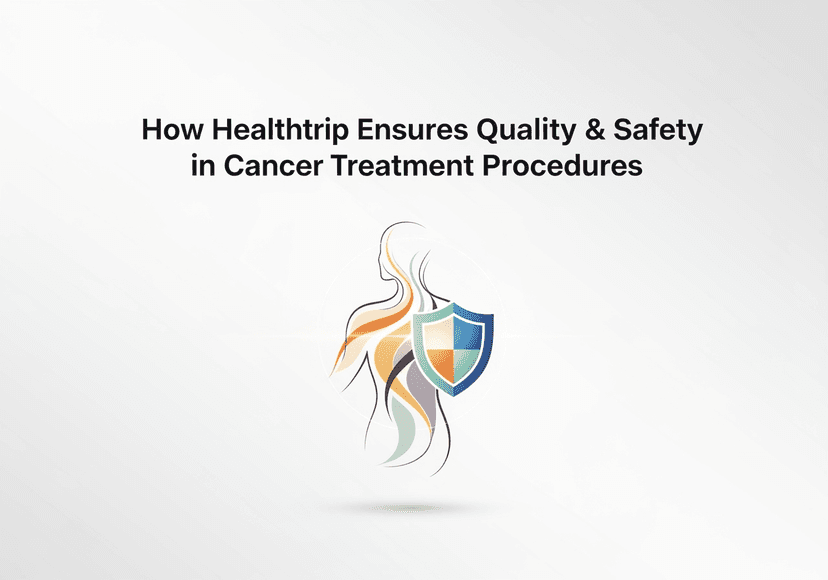
How Healthtrip Ensures Quality & Safety in Cancer Treatment Procedures
Detailed guide on cancer treatment, featuring doctors, hospitals, risks, recovery,
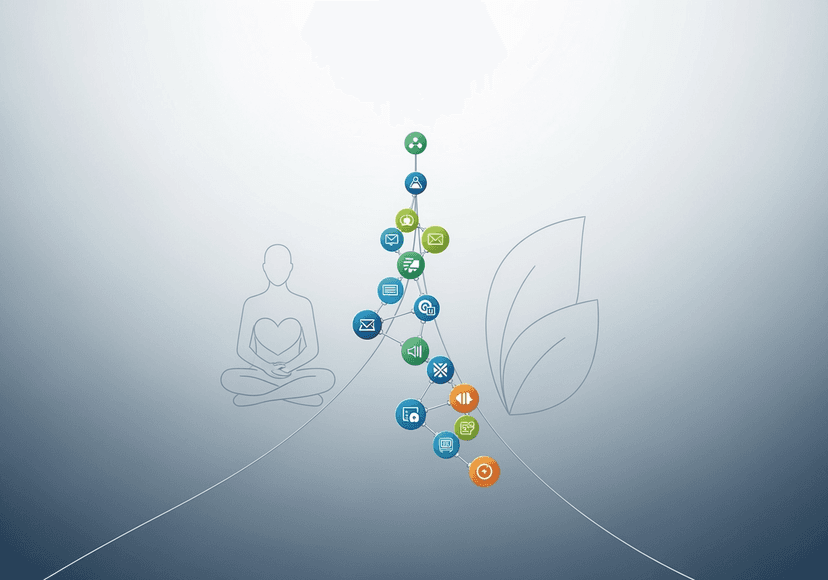
End-to-End Logistics for Cancer Treatment with Healthtrip's Support
Detailed guide on cancer treatment, featuring doctors, hospitals, risks, recovery,
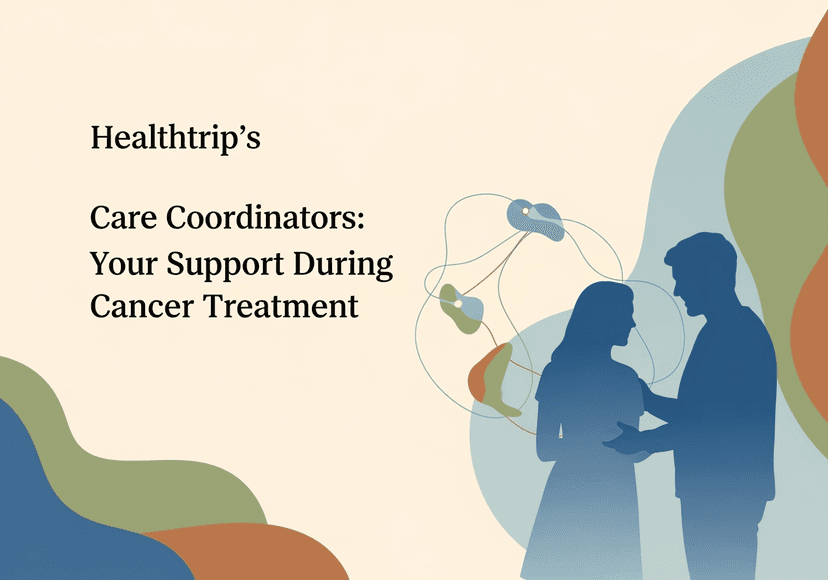
Healthtrip's Care Coordinators: Your Support During Cancer Treatment
Detailed guide on cancer treatment, featuring doctors, hospitals, risks, recovery,
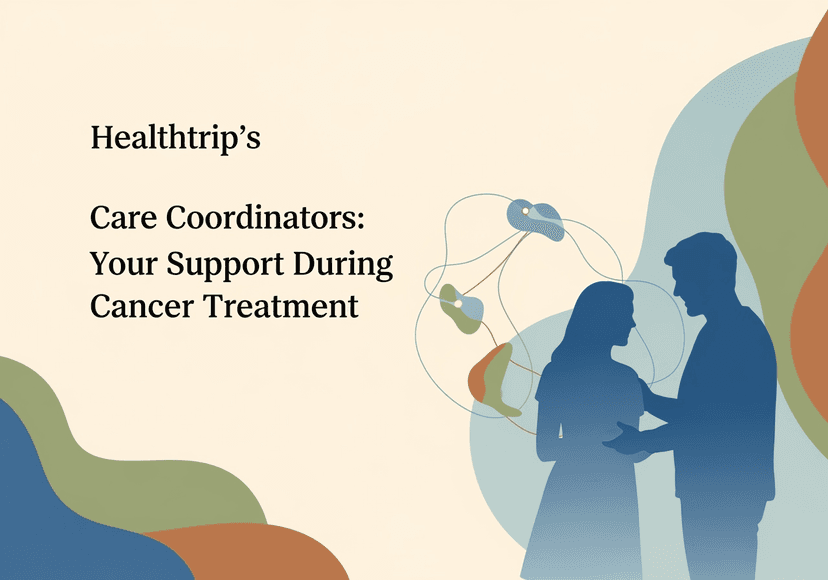
Healthtrip's Care Coordinators: Your Support During Cancer Treatment
Detailed guide on cancer treatment, featuring doctors, hospitals, risks, recovery,
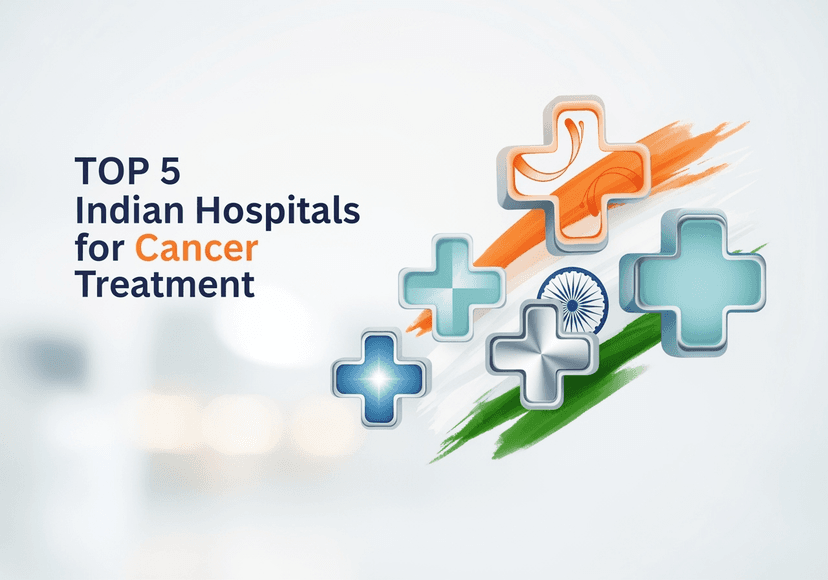
Top 5 Indian Hospitals for Cancer Treatment
Detailed guide on cancer treatment, featuring doctors, hospitals, risks, recovery,
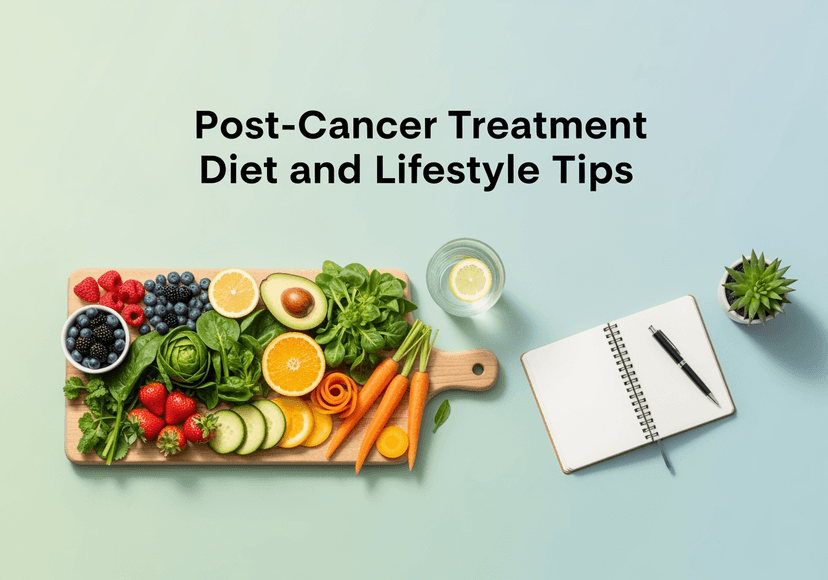
Post-Cancer Treatment Diet and Lifestyle Tips
Detailed guide on cancer treatment, featuring doctors, hospitals, risks, recovery,










